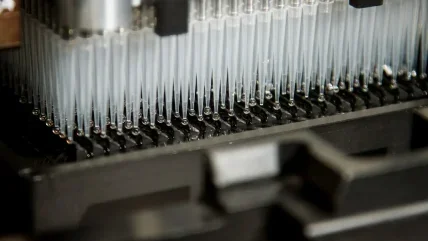
US-based Epigenetic testing laboratory TruDiagnostic has introduced the world’s first epigenetic ageing analysis of individual organ systems, using validated and system-specific trained clocks.
The algorithms, developed by scientists at Yale University, were previously released in biology journal bioRxiv as a preprint, with peer-reviewed publications expected later this year.
Known as SYMPHONYAge (System Methylation Proxy of Heterogeneous Organ Years), the set of system-specific algorithms offers a new way to measure ageing.
The Yale-developed trained clocks are designed to examine how different parts of the body independently and synchronously decline over time, said TruDiagnostic.
Yale researcher Albert Higgins Chen said: “Many age-related illnesses stem from issues in various biological systems working together.
“For instance, arthritis is the result of both musculoskeletal wear and inflammation, whereas stroke can happen due to problems in the cardiovascular system, metabolism, inflammation, and brain function.
“These interconnected patterns can lead to different ageing types, making some people more prone to certain age-related diseases. Understanding these patterns helps in forecasting health outcomes.
According to researchers, the organ systems of the same body age differently due to lifestyle and dietary choices, which can be calculated by examining 11 major organ systems.
The organ systems include the lungs, heart, brain, hormone age, metabolic age, musculoskeletal, blood, liver, kidneys, and immune system.
SYMPHONYAge differs in scope validation and associations with various health outcomes and is the only published clock that provides organ-specific ageing information.
TruDiagnostic holds an exclusive license on the use of SYMPHONYAge algorithms, previously known as Systems Clock during earlier stages of research and development.
Unlike its early-stage predecessors, which reported on only nine organ systems, SYMPHONYAge reports on 11 organ systems using system-specific clocks.
The algorithms also predict one integrated whole-body clock that leverages the 11 system-specific clocks as input.
Furthermore, SYMPHONYAge leverages 133 molecular, cellular, and functional biomarkers for modelling organ system ages, while legacy organ clocks used only 59 biomarkers.






